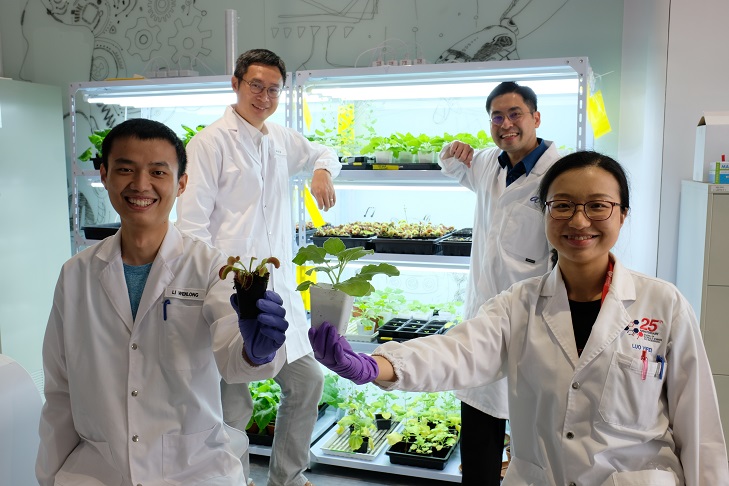
NTU Singapore Develops Communication Device for Plants
March 24, 2021| |
A group of experts led by scientists from Nanyang Technological University in Singapore (NTU Singapore) has developed a communication device that can deliver electrical signals to and from plants. The findings are published in Nature Electronics.
For decades, scientists have known that plants emit electrical signals to sense and respond to their environment. Measuring the electrical signals emitted by plants could help researchers in various applications, including plant-based robots or early disease detection for food security.
The NTU team used the Venus flytrap, which was attached to a conformable electrode using hydrogel as adhesive. Through this system, the researchers can pick up electrical signals to monitor how the plant responds to its environment and send electrical signals to the plant to stimulate it to close its leaves. However, the electrical signals were too weak because of irregular surfaces of the plant that interfere with the attachment of the device. This led the team to use another method similar to an electrocardiogram (ECG) commonly used to detect heart problems.
As a proof-of-concept, the researchers attached their 3-mm device to the surface of a Venus flytrap and with the use of a smartphone, successfully stimulated the leaf to close on demand as well as pick up a piece of wire through a robotic arm.
Read more from NTU Singapore.
| |
You might also like:
- Study Shows How Plants Sense Electric Fields
- New Device may Speed Up DNA Insertion into Bacteria
- Israeli Scientists Discover Possibilities of Plant-Sustained Electricity
Biotech Updates is a weekly newsletter of ISAAA, a not-for-profit organization. It is distributed for free to over 22,000 subscribers worldwide to inform them about the key developments in biosciences, especially in biotechnology. Your support will help us in our mission to feed the world with knowledge. You can help by donating as little as $10.
-
See more articles:
-
News from Around the World
- International Research Team Releases Rye Genome Sequence
- Experts Initiate to Modernize OECD Biotechnology and Biosafety Recommendation of 1986
- NTU Singapore Develops Communication Device for Plants
- Pakistan Committed to Enhance Cotton Crop Output, Minister
- Japanese Researchers Discover Phytol as Agent for Root-Knot Nematode Resistance
- Chinese Study Confirms that Extreme GM Opposition is Associated With Low Objective Knowledge Levels
- Japan Launches World's First Genome-Edited Tomato
- Experts Unravel One Big Secret of Photosynthesis
- Gene Discovery to Help Increase Cereal Yields
-
Research Highlights
- Positive Regulator of Cold Tolerance in Banana Found
-
Plant
- Improved CRISPR-Cas9 Version Knocks Out Multiple Plant Genes at Once
- Canada Exempts Non-novel Gene-edited Plants from Regulatory Review
-
Read the latest: - Biotech Updates (April 17, 2024)
- Gene Editing Supplement (April 10, 2024)
- Gene Drive Supplement (February 22, 2023)
-
Subscribe to BU: - Share
- Tweet

